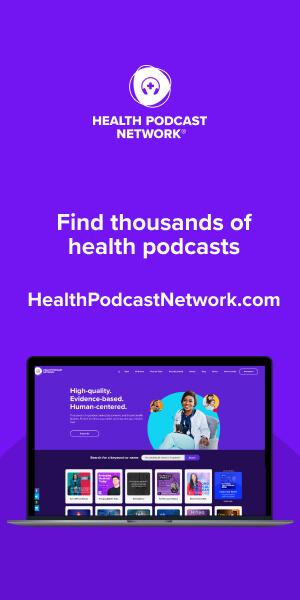One-on-One with Matthew Versaggi, Senior Director of AI and Cognitive Technology, UnitedHealth Group, Optum Technology
During this year’s MedCityInvest Digital Health conference, Demi Radeva, one of Digital Health Today’s global ambassadors, had the chance to sit down one-on-one with Matthew Versaggi, Senior Director of AI and Cognitive Technology, Optum Technology. Optum is a leading information and technology-enabled health services business dedicated to helping make the health system work better for everyone. The parent company of Optum is UnitedHealth Group (NYSE:UNH), a diversified health and well-being company serving more than 85 million individuals worldwide. Read on to learn more about computational cognition, mind viruses, and the importance of tectonic shifts to innovation in healthcare.
Q1: What do you believe is the next digital health tech that’s going to change the landscape?
Matthew: I believe wave three of AI is where we will see the real impact. The waves of artificial intelligence are how we determine the maturity of the technology. Wave one was kind of interesting. Wave two is where we are now and it includes machine learning and deep learning.
Wave three is where we begin talking about systems that can learn autonomously. They can reason on their own as they procure information from the outside world. That will give us computational cognition. That we will find emanating from the cognitive science space.
The Department of Defence is actually using that quite a bit now, so we know that it’s been proven outside of the healthcare space. Problems that exist in the military domain, are a lot harder than the ones we have in healthcare. Ultimately, I believe that wave three AI will change the healthcare landscape the most.
Q2: what kind of data and information would actually feed into this type of AI tech in order to allow it to realize its full potential?
Matthew: If you take a look at your physical brain of a mature, healthy adult, what you have in your head doesn’t rely on the data to train it as a mainstay. It has got capabilities to learn and it can reason on its own, it has perception abilities, emotion… You’ve got a number of things that provide human cognition.
These systems have the ability to learn from certain things. So It’s not like you’re creating a deep learning system, where you’ve got inputs, rather, it takes the context of a problem and it reasons automatically, that’s a capability we just do not have right now.
Q3: What would we apply these types of technologies in healthcare?
Matthew: Anything clinical!
Q4: Would you say that digital health technologies are could be damaging to our health?
Matthew: Absolutely. There are mind viruses. A mind virus is a mental version of the same physical virus that you can get.
So If someone gives you a bad idea.. that’s an example of a mind virus. And what does that do? You hold on to that idea for a large portion of your life, It becomes ingrained in your psychological DNA, and it becomes you.
Q5: In order for a new digital health technology to be successful (if we define success as getting reimbursed for) what needs to happen?
Matthew: In the healthcare space, most companies are driven by financials. For the most part, the motivation is to preserve the income stream, even if it means sacrificing innovation, experience, etc. Now, that leaves room for the grass to grow through the concrete so to speak, because you just never know where it’ll come from.
Either way, it doesn’t give incentive for those who are protecting that income stream to change it or sacrifice it, because it’s a risk. That risk is tied to financial and stock market performance. Large, public companies, have a fiduciary responsibility and thus, are unwilling to jeopardize existing income streams.
What tends to happen in this case is that the ground beneath us shifts far enough so that the buildings either have to fall down or they have to move… I think we already are starting to see this happening. Berkshire Hathaway came in with Amazon, and JP Morgan and said, we are getting the healthcare space.
You’re going to see the next level of threat actually manifest itself in reduced market share and in reduced income for the big players to make a change. It’s just the way that historically those industries have reacted. Oftentimes, we’ll go back into history and look at doppelgangers that are structured very much like this and see how it all worked out or didn’t.
Lightning Round
1. What is a saying, quote or phrase that motivates you?
Be authentic.
2. What book do you recommend to our listeners?
The 48 Laws of Power by Robert Greene
3. What advice you would give to those who innovate in the digital health space?
You must existentially be the thing you say you are.
4. What is the tech that makes her life better and easier and keeps you healthy?
The cell phone. It is a high performance mobile computing device. We just happen to call it a cell phone, but it’s so much more than a cell phone. It enables you to do so much!
5. If I give you a check for 5 million where would you invest it and what health technology would invest today?
Quantum.





